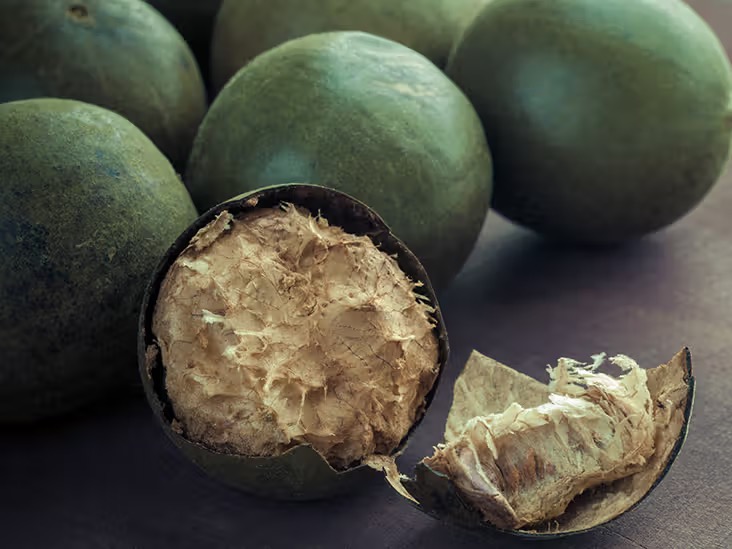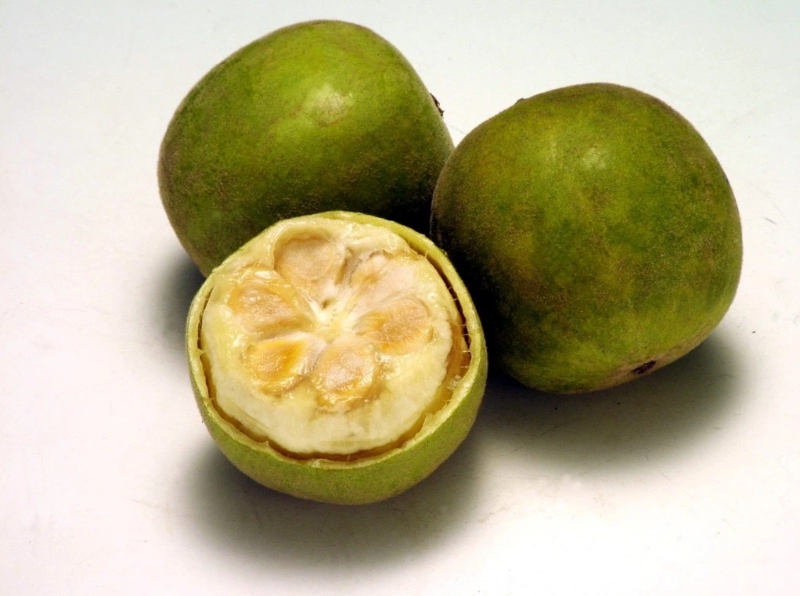







Content Menu
● Health Benefits of Monk Fruit
>> Safe for Diabetics and Blood Sugar Friendly
>> Potential Anti-Cancer Properties
>> Weight Management Assistance
>> Gut Health Support through Prebiotic Effects
● Safety of Monk Fruit Consumption
● Usage in Food, Beverage, and Health Products
● Potential Drawbacks and Consumer Considerations
>> 1. Is monk fruit safe for people with diabetes?
>> 2. Does monk fruit sweetener contain calories or carbohydrates?
>> 3. Can monk fruit help with weight loss?
>> 4. Are there any side effects associated with monk fruit?
>> 5. Is monk fruit recognized as safe by regulatory authorities?
Monk Fruit, also known as luo han guo, is a natural sweetener derived from a small green melon-like fruit native to Southern China. Traditionally used in Chinese herbal medicine for centuries, monk fruit is gaining global recognition as a healthier alternative to sugar. The sweet compounds in monk fruit, known as mogrosides, are remarkably sweet—approximately 250 times sweeter than regular sugar—yet they contain zero calories and have no impact on blood glucose levels. This unique profile makes monk fruit especially attractive for the food, beverage, and healthcare industries, particularly for companies focusing on natural sweeteners, functional polyols, and dietary fibers.

Monk fruit is a member of the gourd family that grows predominantly in the mountainous regions of Guangxi and Guangdong provinces in China. The fruit itself is round, green, and slightly smaller than a tennis ball. After harvesting, the fruit is typically dried and then processed to extract mogrosides, the group of antioxidant compounds responsible for its intense sweetness and health benefits.
Mogrosides stand apart from traditional sugars such as glucose and fructose because they do not raise blood sugar levels when consumed. Instead, the body metabolizes these compounds differently, which is why monk fruit is often used as a sugar substitute for people managing diabetes or those aiming to reduce calorie intake without sacrificing sweetness.
Extensive research indicates that monk fruit sweetener does not increase blood sugar or insulin levels, making it an ideal choice for people with diabetes or insulin resistance. While regular sugar rapidly raises blood glucose, mogrosides are metabolized via a different pathway that bypasses the typical glycemic process. This characteristic means that monk fruit can help control blood sugar spikes, reducing the risk of diabetes-related complications when used as part of a balanced diet.
Mogrosides also function as powerful antioxidants, substances that help neutralize harmful free radicals in the body. Free radicals contribute to oxidative stress, a key factor in aging and many chronic diseases, including heart disease and cancer. By binding to and stabilizing these free radicals, monk fruit antioxidants may help protect cells and tissues from damage.
Chronic inflammation is linked to numerous health conditions such as arthritis, cardiovascular disease, and certain cancers. Studies suggest that mogrosides in monk fruit exhibit anti-inflammatory properties, potentially helping to reduce inflammation-related damage and promote overall health maintenance. While most evidence comes from laboratory and animal studies, these findings are promising for future human clinical trials.
Preliminary research shows that mogroside IVe, a specific compound in monk fruit, may inhibit the growth of cancer cells in vitro by preventing their proliferation and inducing apoptosis (programmed cell death). Though this evidence comes mainly from test tube and animal studies, it opens the door for more comprehensive research into how monk fruit components might aid cancer prevention or therapy in humans.
One of the biggest challenges in maintaining a healthy weight is reducing calorie intake from sugars and sweetened foods. Monk fruit's zero-calorie profile means it provides sweetness without adding to total caloric consumption. This characteristic makes it particularly useful for those on calorie-restricted or low-carb diets who still want to enjoy sweet flavors without negative metabolic consequences.
Emerging evidence suggests that mogrosides may serve as prebiotics—non-digestible compounds that promote the growth of beneficial gut bacteria such as Bifidobacterium and Lactobacillus species. A healthy gut microbiota supports digestion, immune function, and even mental health. Although human studies are limited, these early findings suggest monk fruit could enhance gut health when included in the diet regularly.

The safety profile of monk fruit has been extensively evaluated. The U.S. Food and Drug Administration (FDA) has granted monk fruit sweetener the status of "Generally Recognized As Safe" (GRAS), supporting its safe use in food and beverage products. Furthermore, animal studies involving high doses of monk fruit extract have shown no toxic effects or harmful reactions, demonstrating its safety even at levels much higher than typical dietary consumption.
Monk fruit is considered safe for all population groups, including children, pregnant, and breastfeeding women. However, as with any food ingredient, moderation is advised until more extensive long-term human studies confirm its safety for continuous high-dose use.
The versatile application of monk fruit sweeteners has increased rapidly in recent years. It is commonly found in:
- Naturally sweetened beverages such as teas, flavored water, and soft drinks.
- Baked goods, where it replaces sugar with minimal impact on flavor and texture.
- Yogurts and other dairy products.
- Confectionery and candies.
- Dietary supplements aimed at supporting weight management or glycemic control.
Many manufacturers blend monk fruit sweetener with other natural sweeteners or sugar alcohols to optimize taste and reduce aftertaste, resulting in clean-label products that appeal to health-conscious consumers.
While monk fruit is generally well-tolerated and enjoyed by many, some consumers report a subtle aftertaste that some find mildly bitter or fruity. The aftertaste is typically less pronounced than other natural sweeteners like stevia, and often masked effectively in blends.
Another important point is that not all products labeled as containing monk fruit are created equal. Some may be mixed with fillers, added sugars, or other artificial sweeteners, which can diminish the health benefits attributed to pure monk fruit extract. Consumers and manufacturers alike should ensure ingredient transparency and product quality.
Monk fruit sweeteners tend to be more expensive than traditional sweeteners, which may affect product pricing and accessibility. However, the growing market demand for natural and healthier ingredients encourages scaling production and innovation to reduce costs over time.
Monk fruit is a safe, natural, and highly effective sugar substitute with numerous health benefits. It is an excellent choice for consumers seeking to reduce calorie intake, manage diabetes, or avoid blood sugar spikes. Its antioxidant and anti-inflammatory properties, along with potential anti-cancer and gut health benefits, position monk fruit as a multifaceted functional ingredient. Approved by the FDA and supported by historical use and scientific evaluation, monk fruit is becoming an indispensable ingredient in food, beverage, and healthcare product formulations.
For manufacturers and OEM/ODM service providers specializing in natural sweeteners, functional polyols, and dietary fibers, incorporating monk fruit in product development can meet increasing global demand for healthier alternatives to sugar while offering consumers a sweet experience without compromise.

Yes, monk fruit sweetener does not raise blood sugar or insulin levels, making it a safe option for people with diabetes.
No, monk fruit sweetener is calorie-free and carbohydrate-free, providing sweetness without impacting caloric intake.
Monk fruit can support weight management by replacing sugar with zero calories, thereby reducing total calorie consumption.
Generally, monk fruit is well-tolerated with no significant side effects reported. Some individuals may notice a slight aftertaste.
Yes, the U.S. FDA has designated monk fruit sweetener as Generally Recognized As Safe (GRAS) for consumption.
[1] https://www.healthline.com/health/food-nutrition/monk-fruit-health-benefits
[2] https://pdf.dfcfw.com/pdf/h2_an202107091502722181_1.pdf
[3] https://www.verywellhealth.com/monk-fruit-11734221
[4] http://money.finance.sina.com.cn/corp/view/vCB_AllBulletinDetail.php?stockid=301206&id=7370608
[5] https://www.medicalnewstoday.com/articles/monk-fruit-benefits
[6] https://cn.galamgroup.com/%E5%85%B3%E4%BA%8E%E6%88%91%E4%BB%AC/
[7] https://www.webmd.com/diet/what-to-know-about-monk-fruit-sugar
[8] https://www.nestle.com.cn/sites/g/files/pydnoa496/files/csv/documents/2014/nestle-csv-report-chinese-version(2013).pdf
[9] https://www.health.com/monk-fruit-benefits-7494675
[10] https://www1.hkexnews.hk/listedco/listconews/sehk/2025/0530/2025053000074_c.pdf
